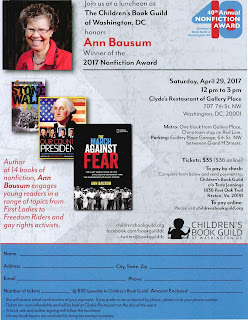In The Porridge Pot Goblin, siblings Benny and Rose are frightened by an invisible goblin, only known by his pranks and his tracks. They fear the goblin is too big for them to stop. But working together, Benny and Rose learn they are much braver than they think.
After reading The
Porridge Pot Goblin aloud, have the class discuss how teamwork saved
the day for Benny and Rose. If Benny had refused to help, do they think Rose could
have trapped the goblin on her own? Did Benny’s presence make Rose bolder? What
role did Benny play in how they ultimately handled the goblin?
Ask students to share a time when they worked with another person to overcome a challenge. Could they have solved the problem on their own? What are the advantages of joining forces? Are there disadvantages?
Writing Prompt: Write your own goblin story. Imagine the presence of an invisible spirit in your home. How would it make itself known? What tricks would it play? Would you try to trap it or make friends? Would you work alone or with someone’s help?
Happy Writing!






